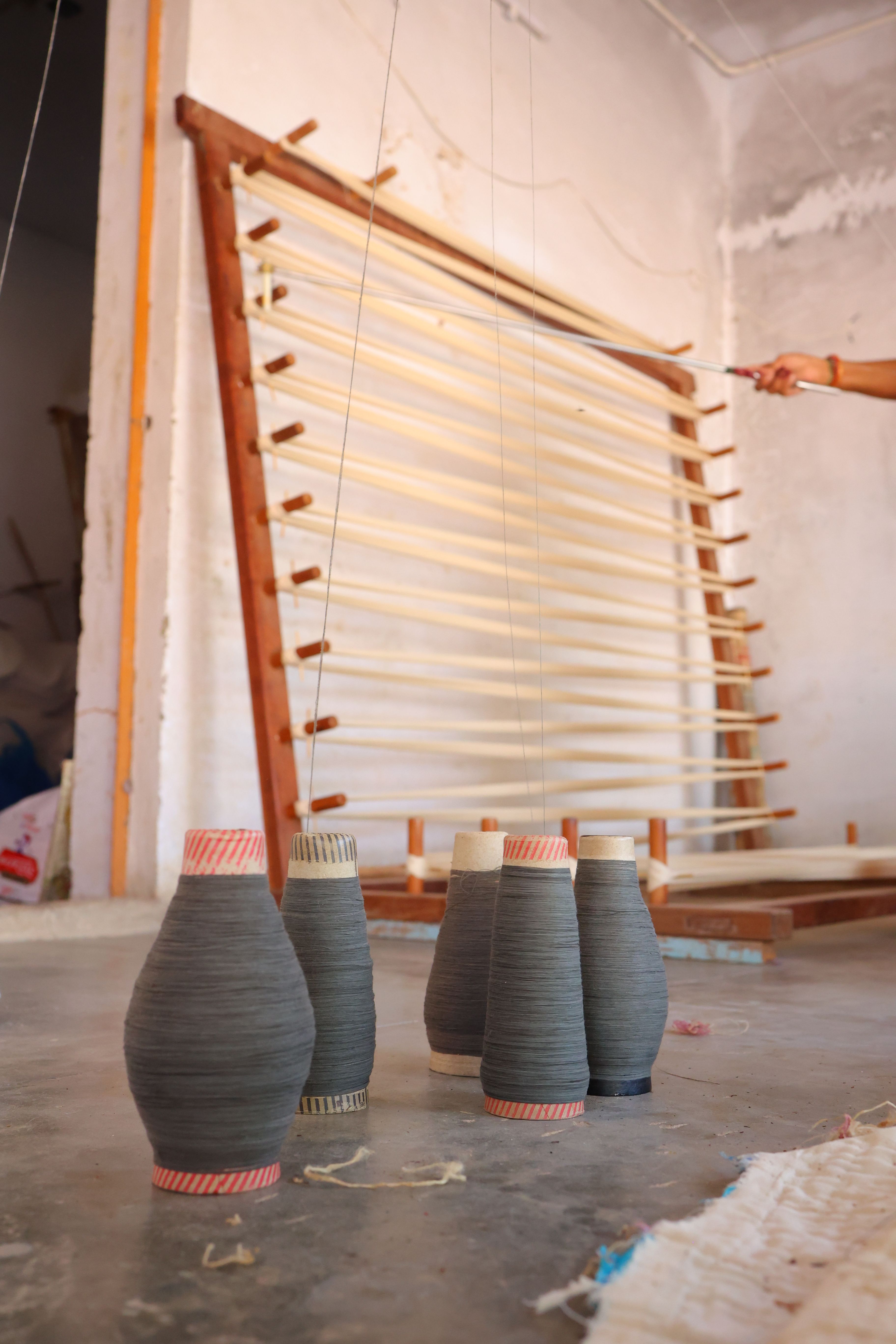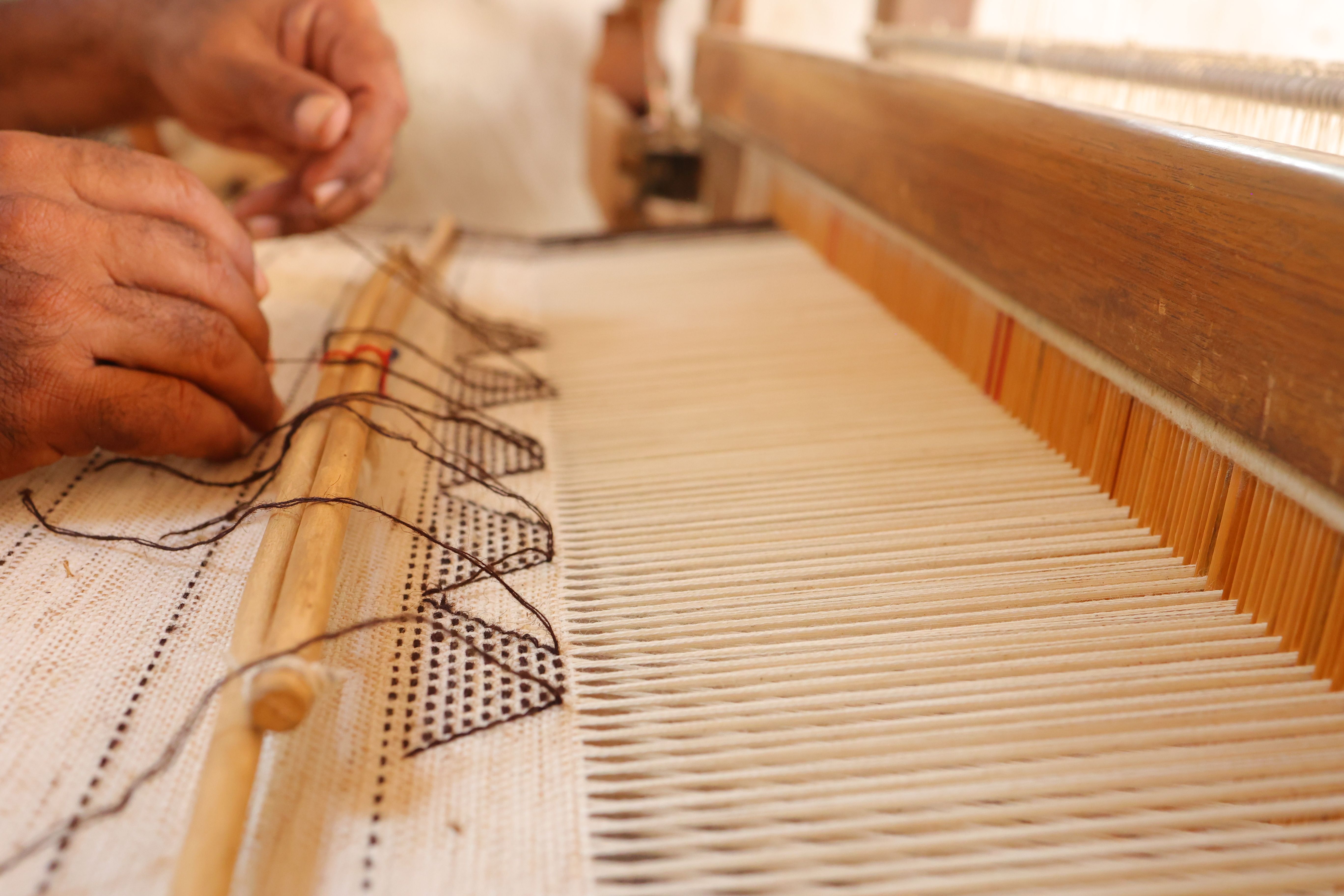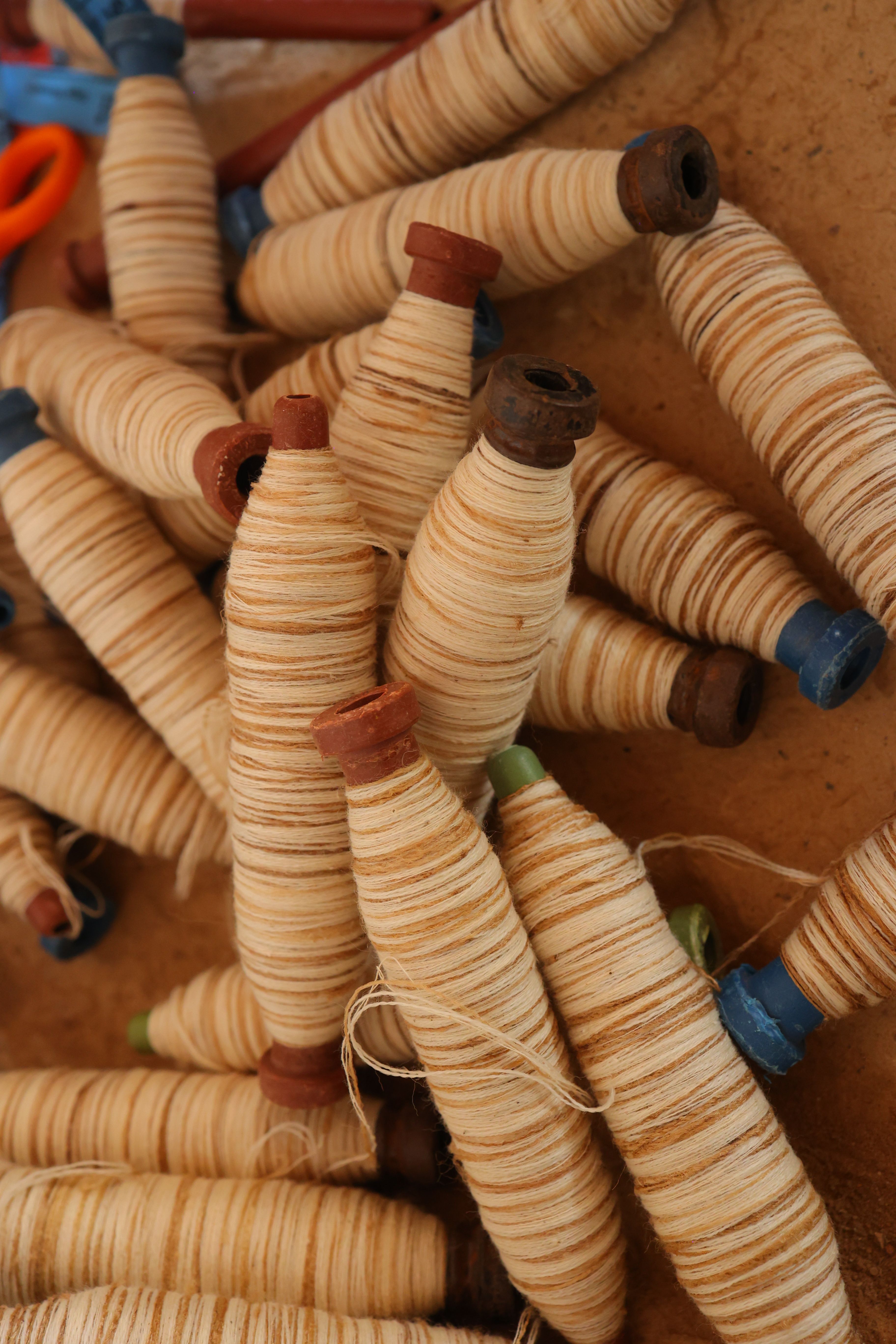Textiles are the gentle web of support holding our homes, bodies, and communities together. They have the ability to change our perceptions, sensory experiences, and the stories we carry in and beyond our own lives. After decades of experience working with the transformative power of textiles, Anjali Purohit decided to build a brand that binds culture and craftsmanship together through handmade home goods and accessories; Meet: Studio Variously.
Purohit is a designer, activist, mother, and first-generation immigrant based out of Eugenie’s home state, Michigan. She grew up immersed in the rich architectural influence of Ahmedabad, India where her affinity for material experience and history was expertly formed and deeply nourished. Her dedication to promoting craftsmanship with integrity took her across the world to multiple countries, where she honed her skills, passion, and commitment to sustainability. She has been a leading voice for ethical production, natural material usage, and the empowerment of women throughout the textile supply chain.
Today, Purohit lives in Metro-Detroit with her husband and two sons, where she explores what it means to build a life, home, and business that remain rooted in the stories and practices of her heritage. Each collection from Studio Variously embodies a delicate sense of the history, labor, and intentionality that Purohit infuses in every step of the design process. Bringing home one of her pieces is an invitation to slow down and appreciate our own deep interconnection with the many people and plants influencing our lives from across the world.
Join us in this Spotlight where we interview Purohit herself and dive into the inspirations, hard work, and sustainable visions behind Studio Variously!
eugenie: Anjali, you have decades of experience with activism, education, and design, and have worked to establish ethical design all over the world, from India to Michigan. What is it that has inspired such a long-burning passion? What has kept you going?
Anjali Purohit (Anjali): The whole process of creation is something that inherently has always excited me, even before I knew that I wanted to pursue design as a degree. From high school onwards I knew materials were my passion, and I just wanted to find an opportunity to learn more about them. My hometown in Ahmedabad, India is one of the most vibrant cities in the country. It has an extremely rich heritage of textiles, including being home to one of the best textile museums in the world.
The surroundings of my childhood school were designed by one of the most important architects of India, the late B.V. Doshi, who has received some of the highest architectural recognition in the world. It was very formative to visually absorb such a rich history of many different materials, including textiles, at that age. We were also on the cusp of a lot of new things because of the internet and other technologies in the late nineties, which helped open up my horizons. I would say the pure process of creation has kept me going up until even now when I work with my artisans. One thing we are always looking at is how to not just focus on the end product, but also the process; How do we make this process more meaningful and long-lasting?
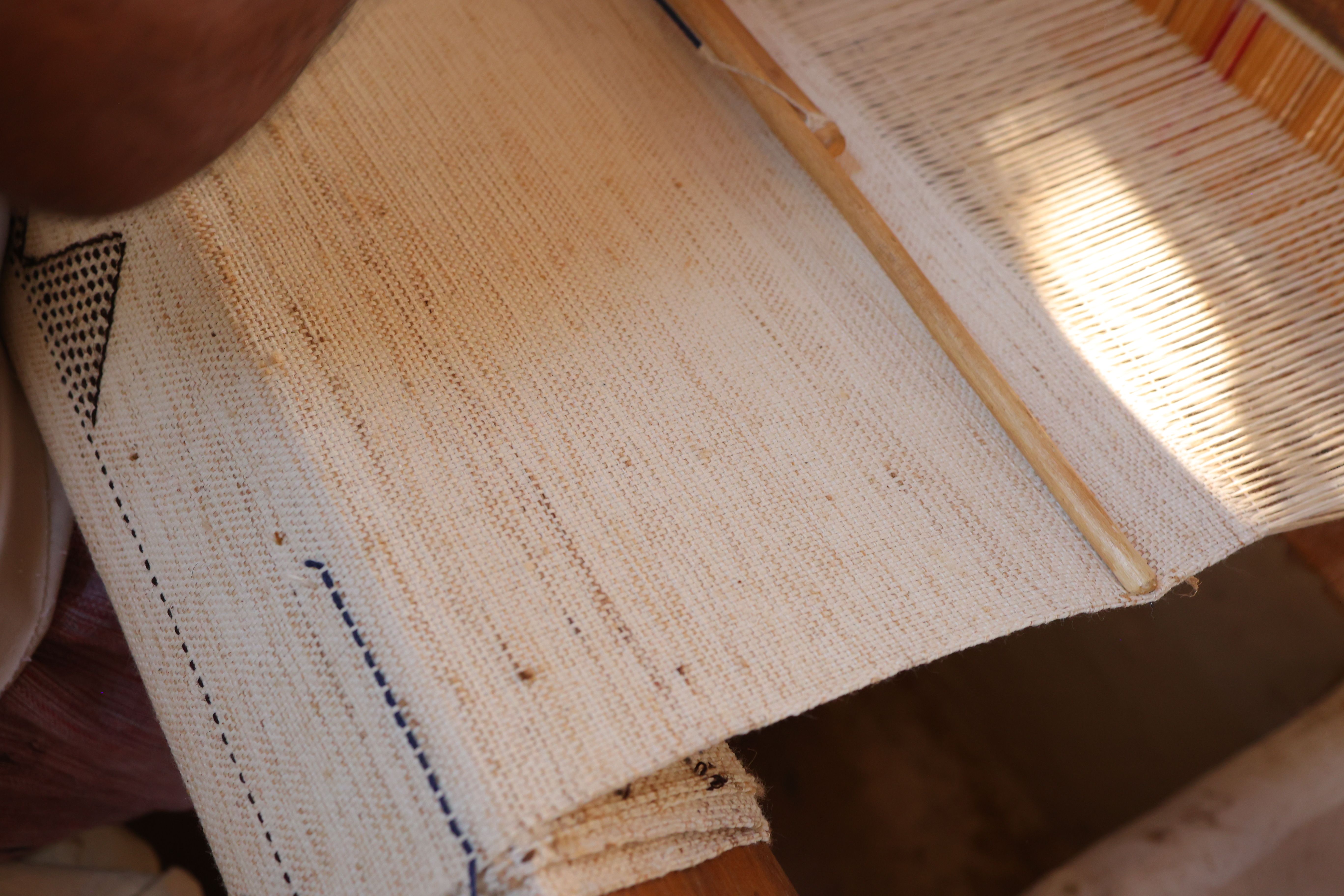
eugenie: Sustainability can be a vague word, especially nowadays in an industry threatened by greenwashing. What does sustainability mean to you and Studio Variously, specifically?
Anjali: I completely resonate with this question because as much as we would like increased clarity and focus on sustainability, there are also increasing shades of grey around it at the same time. For me, it is a continual work in progress; I'm learning every day about new ways to improve and innovate. It is a balance between People, Process, and Planet; How can I consciously engage all three aspects?
When I say “People”, I mean the artisans that I work with, but also the consumers, the end users of our home goods. “Process” includes using many ancient and heritage techniques that require significant exploration, research, and time while also considering the logistics. And then with “Planet”, we are definitely keeping in mind that everything we do is creating an impact on our environment; What are those impacts, and what is causing them? We are slowly getting better at balancing all three in order to stay as true to our brand values as possible.
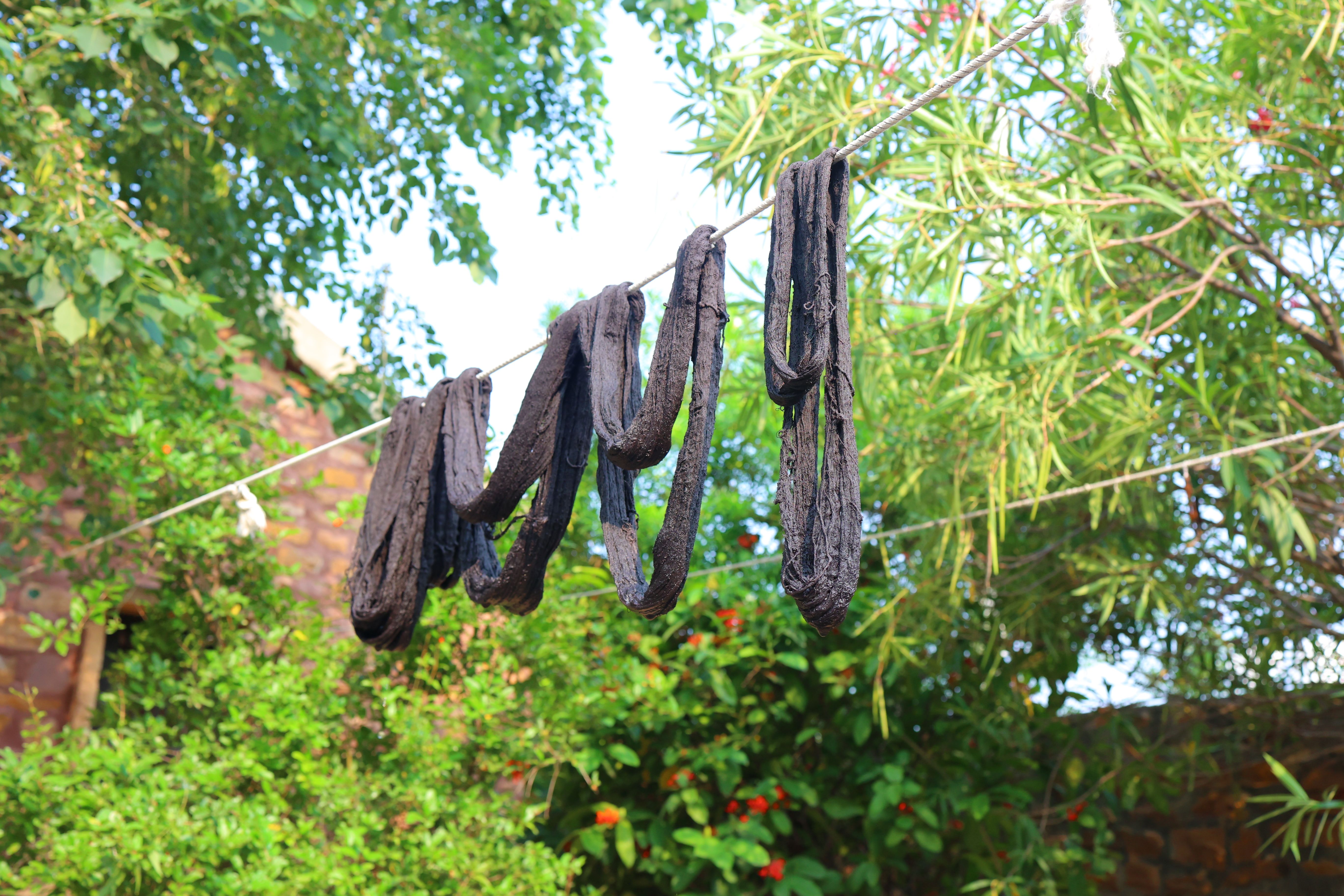
eugenie: Your brand talks a lot about working with women artisans in India and promoting female empowerment. Can you speak a little bit more to the importance of that?
Anjali: Yes, absolutely. So much of the fashion and textile industry is driven by women; On the shop floors, from the factories to the farms and the fields, to the entire supply chain, women are in key roles. I'm fortunate that I have women working in most of the roles in Studio Variously including rural artisanal work, logistics, and all the way up to our branding designers. Only about 20 to 30 percent of our workforce are men, so in a way, women are like the lifeline of my brand.
This year I am also starting to collaborate with 100% women artisan-based setups in Peru and Nepal. As a working woman and mother myself, I can definitely see the value this work adds to the lives of the women involved with Studio Variously. Not only does the work empower the women workers, but also it empowers their families and their whole communities. These women have many of the same daily concerns that I have for my kids here, and it gives me a lot of hope that we can collectively work on something mutually empowering together.
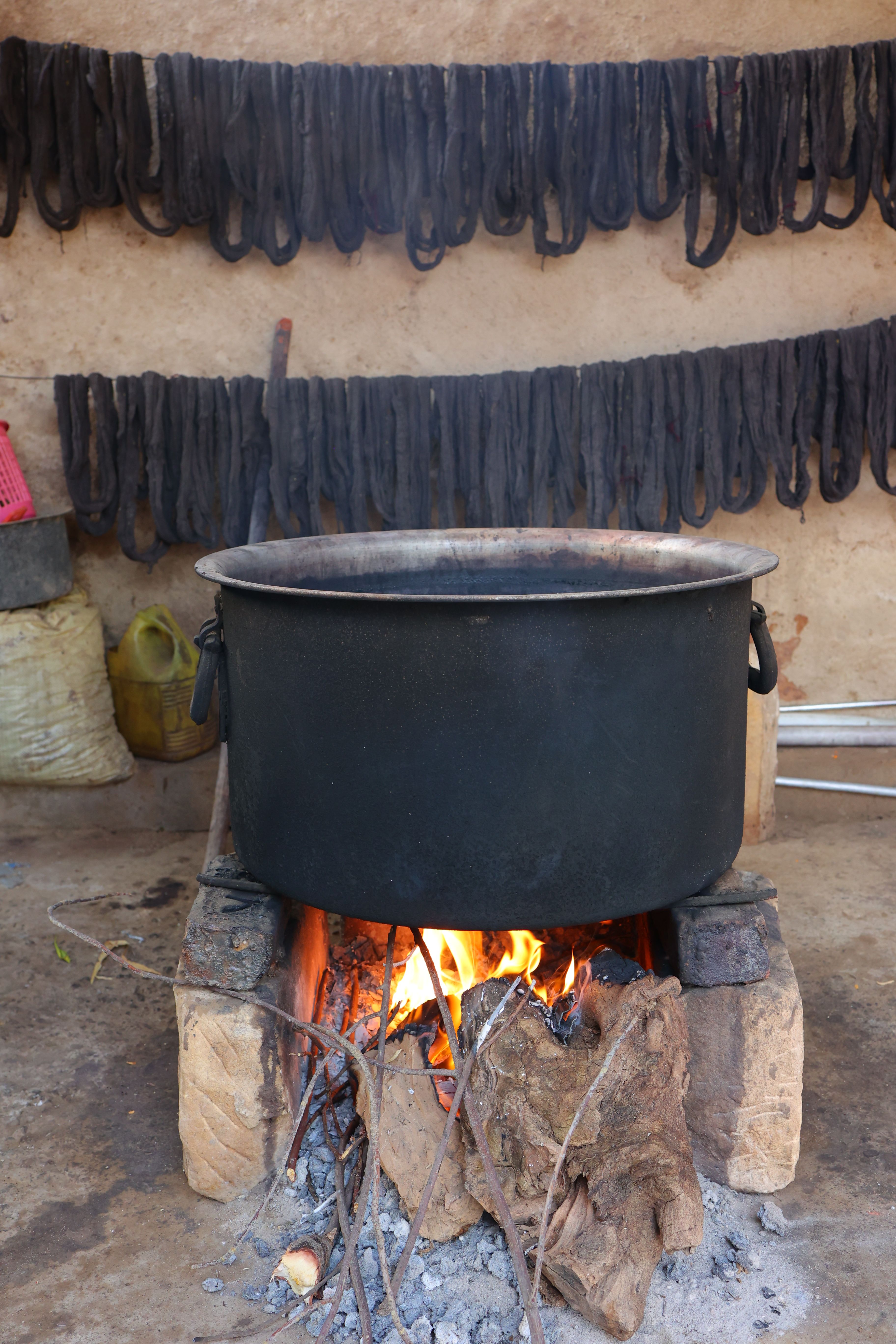
eugenie: What are some of the challenges you have faced as a woman designer who is employing other women in an opaque industry?
Anjali: The challenges grow as you grow, right? So it is a good sign, in some ways. I think one of the challenges for me is personal; As a mom of two boys, it can be difficult to balance my time in the best ways for me personally. From a work point of view, I'm a first-generation immigrant business owner here, and there have been times when people have had difficulty accepting me in this line of work. For example, sometimes we associate people from certain places with doing only one kind of work, you know, things like that. So that acceptance bit was initially pretty tough ice for me to break. Another challenge has been helping people understand why something costs what it does, or why it takes so much time. But building things from scratch as a new immigrant in America was certainly one of my biggest struggles.
eugenie: You moved to start a whole new home and life here, while also starting a home textile business of your own. Is there a connection between those two events?
Anjali: That’s a really nice question. I had previously done a lot of work in the fashion industry before moving here, especially for designers out in LA, but I found there is something special about home goods that allows for more space to experiment with material processes and techniques. I also found that it helped empower the artisans as well, as many of them had never worked on home goods before. Studio Variously was their first experience with it, so they gave me a chance and we truly started our journey together.
In another way, working with these artisans helped me and my family stay true to our origins when we first moved here. Eventually, the strong architecture and design community here in the Midwest began to resonate very strongly with me and inspired me much in the same way it did back in India.
eugenie: Are there any specific books, mentors, or role models that have inspired you along your journey?
Anjali: There have been many inspirations for me, starting with B.V. Doshi, the famous architect from my hometown. I am so fortunate to have been born there and been able to absorb it all. Built spaces have been the most inspiring to me, especially spaces in both my hometown and Delhi, the city where I pursued my design degree and gained a lot of cultural enrichment.
Moving to Italy for my Master's Degree was also very inspiring for me. Working with some very prominent designers there helped shape my thoughts and motivated me to look at things differently. These design inspirations were all very formative for me.
My parents have always been my greatest role models and support in my career, especially when I was younger and it was unheard of to pursue design as a long-term career choice. And here in Michigan, my husband is my go-to person. He is definitely the biggest and best critic I have; he has an excellent eye for quality and a refined sense of strategy. My kids are also an inspiration to me, because part of what I am trying to do is have a lasting impact on the way younger generations approach consumerism. Teaching my kids better values and responsibilities around consumerism is a big guiding force in my life.
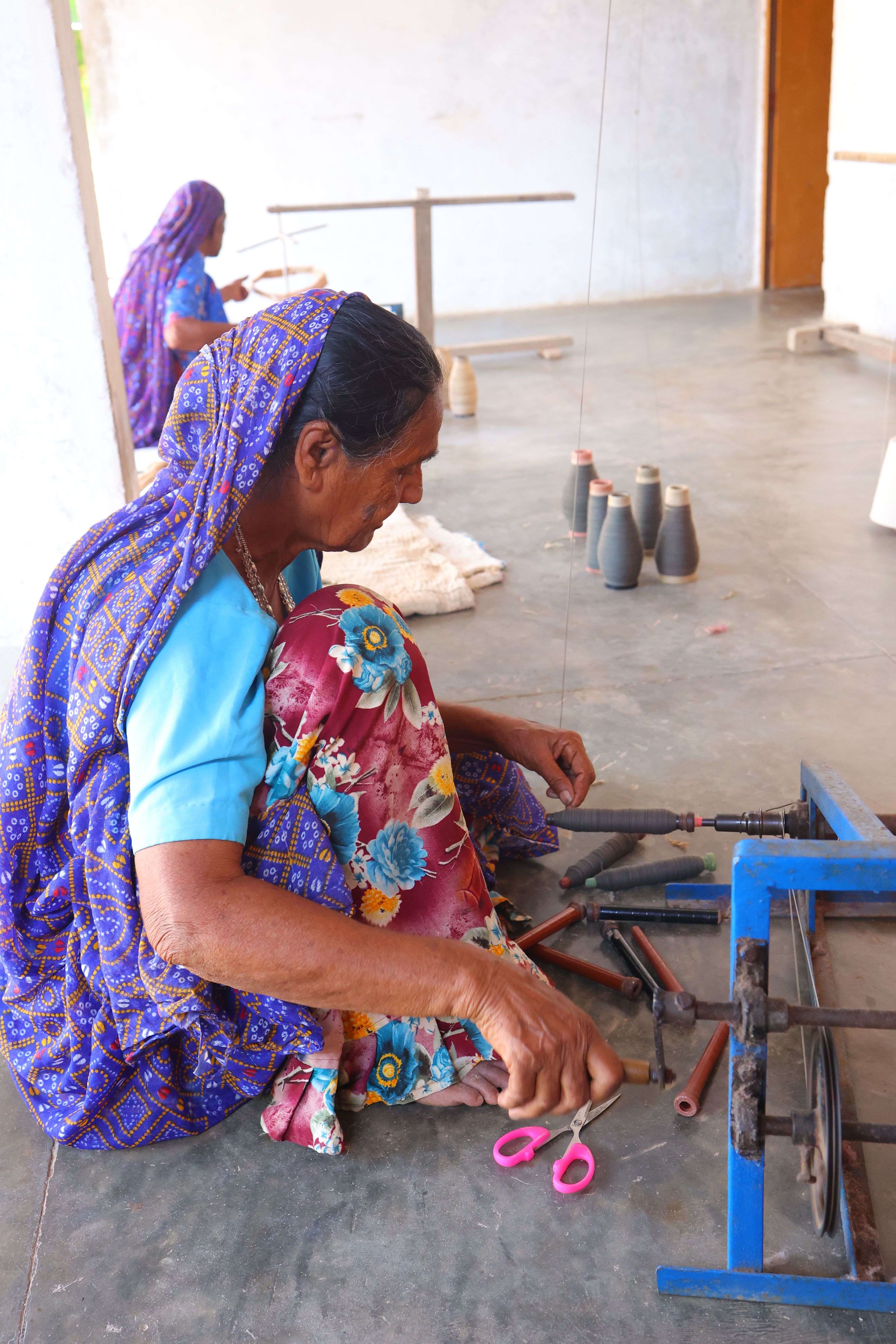
eugenie: It sounds like much of the inspiration in your life has stemmed from the field of Architecture. Do you find there is a connection between your approach to textile design and the practice of architectural design?
Anjali: Yeah, I do. I spend a lot more time reading and viewing things about architecture than I probably do about fashion. Architecture impacts the space you are in, impacts everyone from all communities, and is open to all kinds of uses. Down the line, it has definitely influenced my design process. I ask questions like “How does this piece look in natural versus artificial light?”, “How will it look in the daytime versus the night time”, and such. I often find that the feedback I get from returning customers is that their pieces continue to grow with them and with the rest of the items in their homes, which motivates me. The pieces have a timeless place in their lives much like the way architecture has a feeling of timelessness to it.
Sustainability in designed spaces including architecture has always inspired me. When I’m looking at materials, I ask how long they will last and the way the environment will impact them. We try to dry most of our textiles naturally with sunlight, and the interesting thing is that the sunlight in one part of India has a completely different effect on the material than the sunlight in another part of India. So all of these environmental aspects are a major driving force in the end product.
That is partially why I have stopped looking at trends. In my past career in India, a big part of my job was to look at short-term trends in order to make a new collection every few months. I consciously stopped doing that when I started my business because I saw how the trends were driving overproduction.
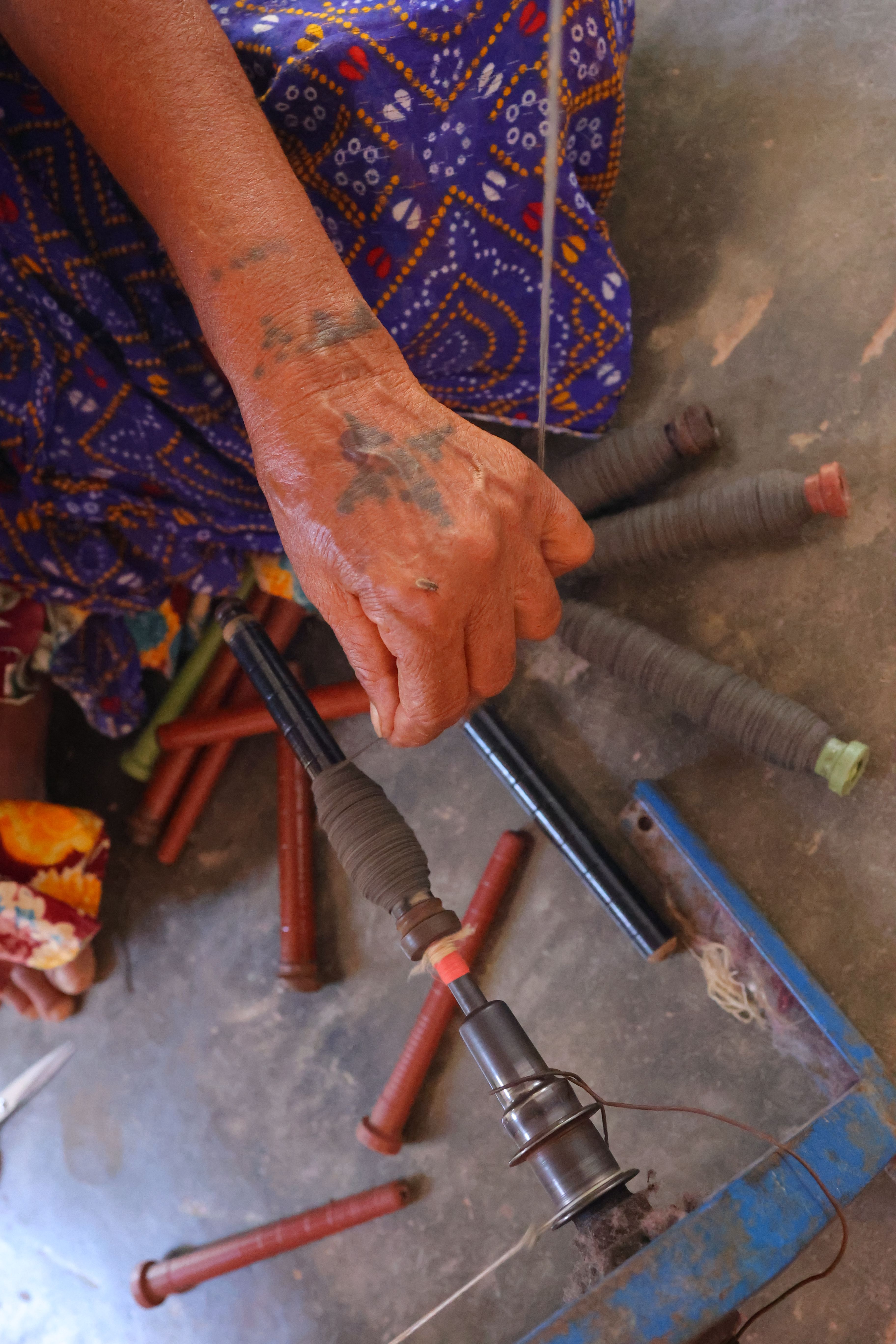
eugenie: Do you have any advice for young designers who want to make a difference in the fashion industry?
Anjali: I would say spend some time working for someone else and be in the field; be out there. Remember to make sure to keep a long-term vision when you’re creating something, and have an open mind to keep yourself educated about all of the new developments in the industry.
eugenie: As you know, Variously is one of eugenie’s cherished brands for its sharp focus on sustainability, but we also carry many other sustainable brands. What other brands or pieces do you resonate with at the shop?
Anjali: It is so fantastic to see how diverse eugenie’s curation is, and it is amazing to see the focus on education present at the shop. I really like Rachel Comey and the modern design language of the jewelry selection. I recently discovered one of the new brands you carry, Ound, which caught my interest because of the hand-knitting; the pieces look beautiful. I also really like Kowtow; they are such a timeless, modern brand as well. 7115 by Szeki is another one of my favorites, and of course, I am always rooting for our Detroit brands like Hope for Flowers by Tracy Reese and Detroit Rose.



